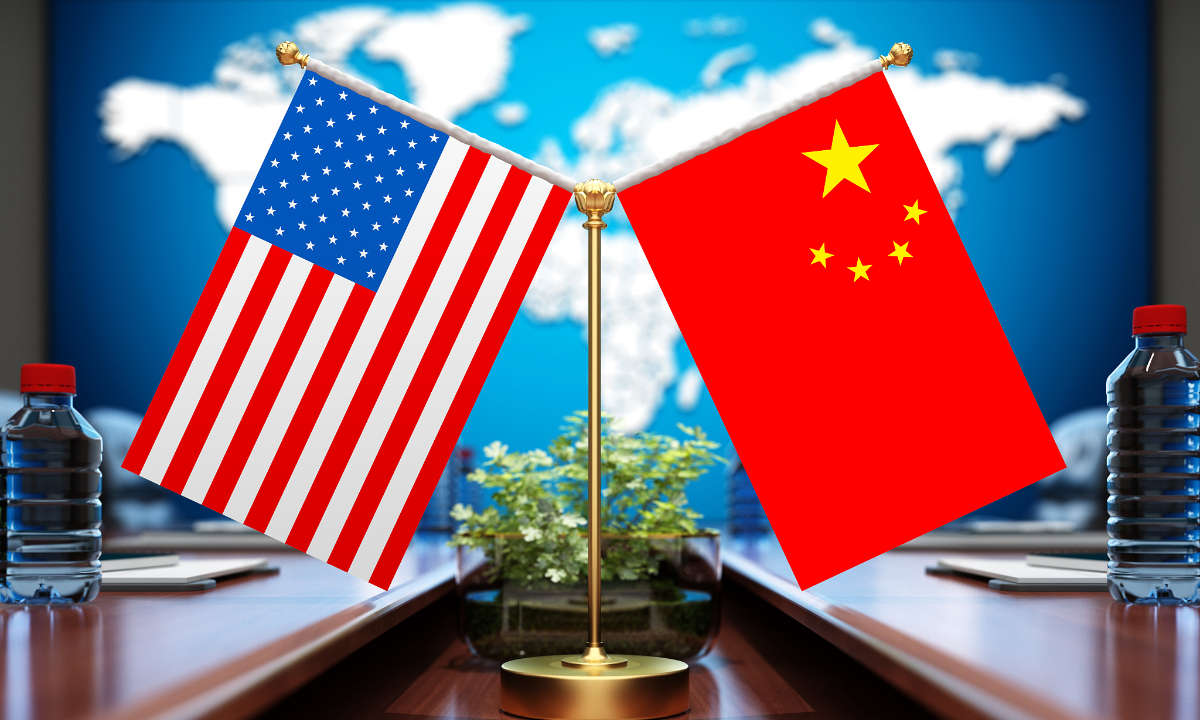
China US Photo:VCG
The US announced on Tuesday (local time) that the implementation of increased tariffs on Chinese imports, which was to have taken effect on August 1, would be postponed for at least two weeks.
The decision may be due to concerns among US businesses about the impact of the tariffs on specific industries or products. When the US imposes tariffs, it is ultimately its consumers who bear the costs, experts said.
The Office of the US Trade Representative (USTR) said that it was reviewing more than 1,100 comments received and expected to announce a final decision in August. The USTR expects that the modifications planned for 2024 will take effect approximately two weeks after it makes the final determination public, according to a statement posted on the website of the USTR on Tuesday.
The US in May announced plans to increase tariffs on Chinese imports worth $18 billion on top of existing tariffs under Section 301. The new tariffs target a variety of imports from China, including electric vehicles (EVs), lithium batteries, photovoltaic cells, critical minerals, semiconductors, steel and aluminum.
The additional levies will cause tariffs on Chinese EVs to rise to 100 percent. The tariff rate will rise to 50 percent on solar cell imports. Tariffs on certain Chinese steel and aluminum products will climb to 25 percent, and semiconductor tariffs will shoot up to 50 percent. Some of the tariffs were initially set to take effect on August 1, 2024.
The initial announcement of the US tariff hikes faced strong opposition from various industries in the country.
US port-related industries raised concerns about the 25 percent tariff on Chinese-made gantry cranes, stating that it would add more than $130 million in cost and put them at a disadvantage when competing with Canadian and Mexican ports, Bloomberg reported on July 1.
Tesla CEO Elon Musk also criticized the EV tariffs, describing the levies as "not good" and a distortion of the car market, the Guardian reported in May.
The tariffs are protectionist measures that are actually detrimental to trade development. They will affect American companies related to these products, as well as companies in the supply chain of these products. Therefore, this approach is bound to face opposition from the industry, as the consequence of increasing tariffs is to increase costs for end users, Li Yong, a senior research fellow at the China Association of International Trade, told the Global Times on Wednesday.
Li said that it's difficult to find substitutes for some Chinese products in the near term. Imposing tariffs will also pose economic risks, with inflation currently being a major issue facing the US, Li added.
China's Ministry of Commerce (MOFCOM) in May strongly opposed Washington's decision to increase tariffs on Chinese imports, calling it "a clear example of political manipulation."
The Section 301 investigation process, originating in the Cold War era, is infamous in international trade history. In September 2020, a WTO panel ruled that the Section 301 tariffs violated WTO rules.




